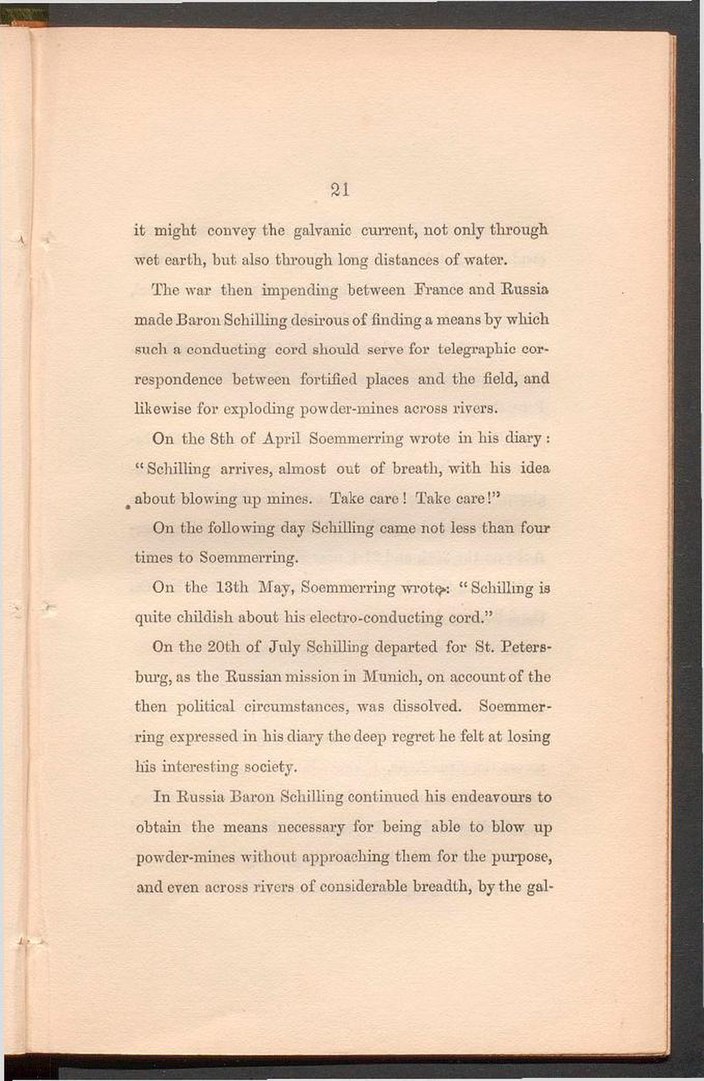21
it might convey the galvanic current, not only through wet earth, but also through long distances of water.
The war then impending between France and Russia made Baron Schilling desirous of finding a means by which such a conducting cord should serve for telegraphic correspondence between fortified places and the field, and likewise for exploding powder-mines across rivers.
On the 8th of April Soemmerring wrote in his diary: “Schilling arrives, almost out of breath, with his idea about blowing up mines. Take care! Take care!”
On the following day Schilling came not less than four times to Soemmerring.
On the 13th May, Soemmerring wrote: “Schilling is quite childish about his electro-conducting cord.”
On the 20th of July Schilling departed for St. Petersburg, as the Russian mission in Munich, on account of the then political circumstances, was dissolved. Soemmerring expressed in his diary the deep regret he felt at losing his interesting society.
In Russia Baron Schilling continued his endeavours to obtain the means necessary for being able to blow up powder-mines without approaching them for the purpose, and even across rivers of considerable breadth, by the
